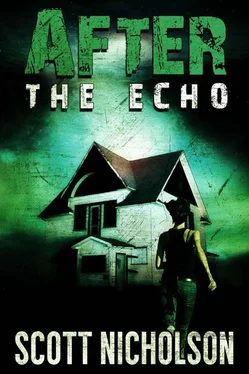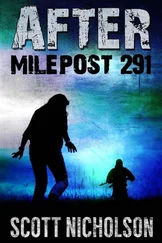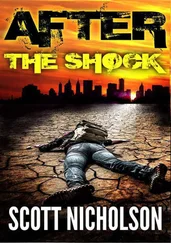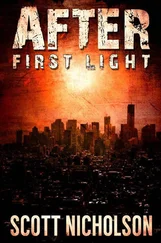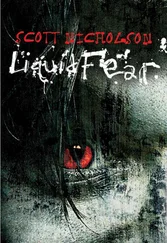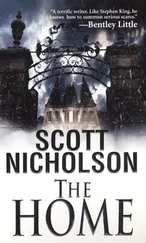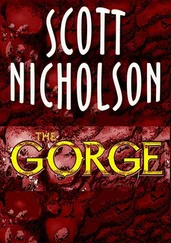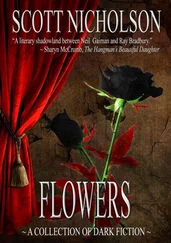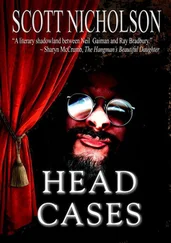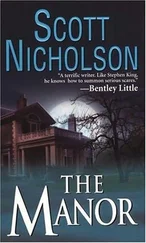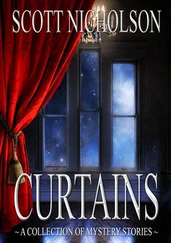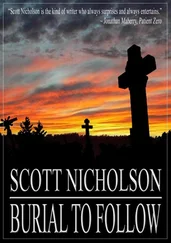Scott Nicholson
AFTER: THE ECHO
A Post-Apocalyptic Thriller
The September sun burned the treetops in a kaleidoscope of gold, scarlet, and a purple so Doomsday deep that the forest appeared bruised in spots.
The air was clean, with much of the haze confined to the eastern horizon behind them, where Charlotte and Winston-Salem had burned to nothing. No one had informed the birds that the world had ended, so their songs and chirrups rang from the high branches. All in all, Rachel Wheeler considered it just another ordinary day in After.
If you don’t think about the dead and the changed . And the next solar storm that could fry us all to madness.
Her legs were sore, but they’d grown stronger with the miles. DeVontay Jones, the dark-skinned man with the glass eye walking behind her, couldn’t even keep pace. Or perhaps he was dawdling so that Stephen could explore like an ordinary boy, dashing to grab a flower here or poke a stick in a mud puddle there. Stephen kicked at the first of autumn’s fallen leaves, taking joy in the loud scuffing sounds.
“How much further?” DeVontay asked Rachel.
“You’re the one with the map.”
“I don’t care about no numbers,” he said in his Philly accent, although its hard edge had softened in the six weeks since the solar flares had erased all borders. “I’m talking how much more of our lives we got to spend walking in the woods.”
“The rest of our lives,” Rachel said. With Stephen out of earshot, she could add, “Which may not be much longer.”
“Miss Optimistic,” DeVontay said with sarcasm. “Where’s the little pep talk, the prayers, the faith?”
Rachel didn’t want to confront faith. Somewhere along the way, the bodies and the carnage and the relentless horror had chewed a ragged hole through the walls of her heart. Any light left inside had leaked out with all the sad inevitability of a ruptured balloon. Where faith had abandoned her, stubbornness had taken up the cross and pushed her toward the mountains.
Where hope had died, anger had stepped into battle formation.
“I still believe,” she said and felt no shame at the lie. She simply believed in something different now.
Survival.
“Well, I believe we ought to sit down a minute,” DeVontay said. “You might know where we are, but I wouldn’t mind getting a look at the map.”
“Don’t you dare make a joke about women drivers,” Rachel said.
“Wouldn’t dream of it.” He tried to wink, but the lid dropped only halfway down his glass eye, making the expression more of a creepy leer.
“Stephen!” Rachel called.
The boy had pranced off into the woods, breaking their rule that they should always stay in sight of one another. Not that Rachel was worried. Since leaving the farmhouse five days ago, they’d stuck to the forest roads, only occasionally intersecting a highway or coming across a house. They hadn’t seen a Zaphead since then, although once in a while strange chuckling sounds had ridden the breeze from a distance.
“That boy doesn’t listen too good,” DeVontay said.
Rachel could tell he was uneasy, because he shrugged the shoulder strap of his rifle down his arm and into position for action. “We’re safe out here,” she said. “Nothing for Zapheads to hunt.”
She shut out the memory of the Zapheads she’d encountered in Charlotte and how they had swarmed over any survivors, driven to destroy any breathing creature that crossed their paths. But the Zapheads—so named by clever bloggers in the early stages of the solar storms and then picked up by the mainstream media—had largely stuck to populated areas, which Rachel believed was due to their suppressed intelligence. Lacking any reason to migrate, they stayed where their brains had fried.
DeVontay, though, had a different theory: the meat was easier.
“Stephen!” Rachel called again. The highway ran a good hundred yards to their right, littered with cars and gas-bloated corpses. Stephen knew enough not to head in that direction.
“Guys!” Stephen called, somewhere past a wall of autumnal maples and sycamores. “I found something.”
Rachel’s ribs squeezed around her heart. She’d settled into the numb routine of foot travel, weary enough of discovery. She’d discovered the sun could unleash invisible hell upon the world, killing billions and changing others into mindless killers. She’d discovered she was among the few survivors plunged into a world where the technological infrastructure built over decades had been erased. She’d discovered God wasn’t nearly as benevolent and constant as she’d always believed.
And now she discovered that she didn’t want to take another step. No more surprises, no more challenges to overcome. But she took the step anyway, and then the next.
And then she was running.
After finding the rifle back at the farmhouse, DeVontay had given her the pistol, and they had practiced with both weapons until she felt confident with them. She’d fought Zapheads at close range, and—in another unwanted discovery—found their blood was red, too, that for all their savagery, they were not much different than the human survivors.
Still, if anyone threatened her or Stephen, she was willing to spill their blood again and again and again.
The thought no longer horrified her. Anger was her last remaining source of motivation, the fire in her belly and the burning in her soul.
DeVontay’s long strides moved him past Rachel, and he entered the clearing a good ten seconds before Rachel. When she saw him slow and lower his rifle, she knew there was no danger.
“Plane,” Stephen said, and Rachel found herself involuntarily scanning the sky, but all she saw was an uneven layer of late-afternoon clouds.
The tops of the trees had been sheared off in a great line, branches twisted and skinned naked, white wood exposed to the sun. Fifty yards ahead, an airplane fuselage had gouged into the ground, a long furrow of reddish-brown soil marking the path of its crash landing. One wing was crumpled against the trunk of a massive oak, and the other was nowhere in sight, perhaps cartwheeled into the far pines.
The plane had a shattered propeller, so Rachel knew it wasn’t a jet. It was a commuter plane that held thirty or forty people, what business travelers called “puddle jumpers.” It had probably been airborne when the solar storms hit, knocking out power and radio contact. The pilot had wrestled the manual controls just skillfully enough to prevent a nose dive, but it was highly unlikely anyone could have survived the crash.
“Damn,” DeVontay said.
“Maybe they were the lucky ones,” Rachel said. Stephen hadn’t registered any shock, more like a boyish wonder. Considering he’d nearly lost his mind after his mother died, Rachel took it as a good sign that he was almost normal.
As normal as anyone could be in After.
“Too bad we can’t fly it,” Stephen said. “Then we’d really get to Mi’ssippi.”
Rachel and DeVontay had nurtured the illusion that they’d eventually get Stephen to his father, who was almost certainly dead or worse. Rachel no longer felt the slightest guilt at the deception. Guilt was a luxury for the civilized.
“Wonder how many people were in planes when the Big Zap happened?” DeVontay said.
“The electromagnetic pulse would have knocked them out of the sky like a giant flyswatter,” she said. “Like they were talking about on the newscasts, back when all this was just a theory.”
“No parachutes,” DeVontay said. “But I guess if you think it’s going to crash, you don’t get on in the first place.”
“What a horrible way to die.”
Читать дальше
